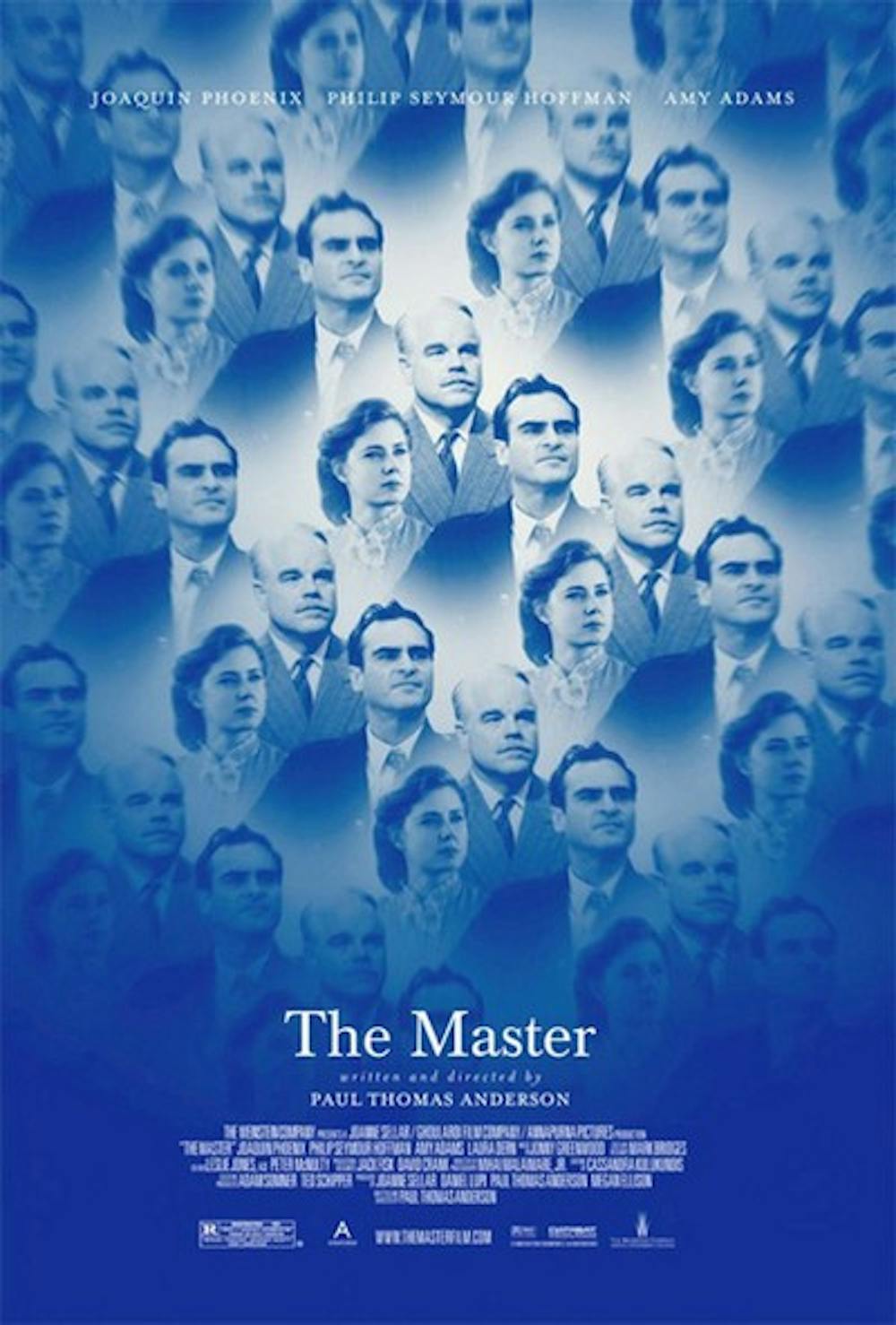Our brains have this habit of quilting dreams from the fabrics of our lives. Paul Thomas Anderson, a filmmaker by trade, does it for a living.
To an arguably greater extent than any other director, he carefully chooses his threads, the way they cross each other, governing patterns, scattering enigmas — ever limiting the number of ways you can pull them apart. You can actually feel the purpose behind each of his stitches, much the same way you can with bedtime imaginations.
And so, more than just an aesthetically rapturous, sonically mysterious and breathtakingly performed work, “The Master” is an American nightmare that needs to be seen and unraveled. It pains viewers with ineffable truths right before their eyes and far beyond their reach, delighting all the while with a magnificence of film and acting craft that such a complex story deserves.
The film centers on Freddie Quell (Joaquin Phoenix), a violent and hypersexual WWII sailor home from war and adrift among peachy American busybodies. Freddie drinks and brawls his way out of a job and onto a yacht, where he meets a charismatic religious leader named Lancaster Dodd (Phillip Seymour Hoffman).
Dodd fronts a pseudo-scientologist cult whose merits get put to the test when Dodd makes Freddie his protege, intent on conditioning him beyond his stark animalism.
Phoenix hits the hard mark between apishness and psychopathy, summoning viewers’ understanding but never stooping to pander for their affections.
An indescribable ease undergirds all his abrupt behavior, clueing us into a man much more complex than his brute force indicates.
He behaves erratically — and often contradictorily — but Phoenix lends a convincing integrity to it all.
Hoffman boasts the same ability to remain predictably unpredictable. Dodd says some of the most outlandish things you’re likely to hear, but you always want to believe him.
This is partly due to Hoffman’s ability to subtly demonstrate Dodd’s greatest fear: That he doesn’t know what he’s talking about.
Scenes in which he sermonizes his way around that fear captivate more strongly than perhaps any others in the film.
Effulgent cinematography captures the dimensions of these stellar performances, as well as the pristinely beautiful place California once was.
Anderson offers continually fresh vision — a newborn crispness from shot to shot as though the camera repeatedly wakes from sleep.
Together with its hauntingly ethereal score, the film sweeps you up into its nightmarish narrative and never releases you until the credits roll.
And by that time, as with most poignant dreams, you’ll wonder if you’d really like to know the truths buried in the stitches of this masterpiece.
Dive verdict: 5 of 5 stars
To get the day's news and headlines in your inbox each morning, sign up for our email newsletters.





